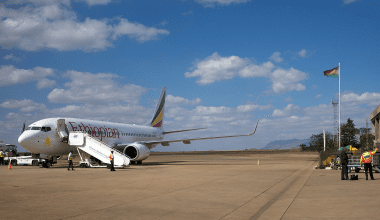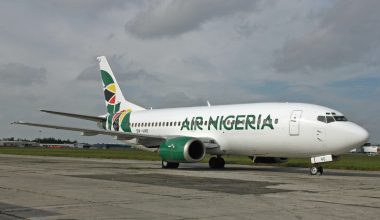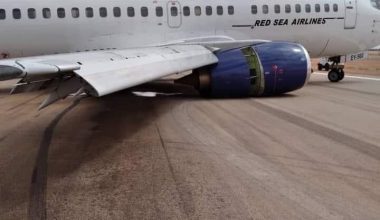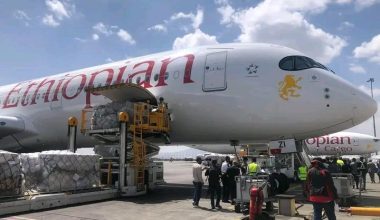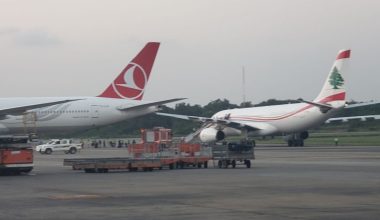Flying an airplane is a fulfilling and exciting career due to its lucrative salary, societal stature, and opportunity to touch the lives of millions of people. As the world is becoming more mobile with the introduction of many national and international routes, it is evident to see high demand for pilots worldwide. Nepal is also experiencing a boom in air travel with more and more people opting to take to the skies daily.
More airlines are springing up to meet rising air travel demand and are in a constant state of expansion. So, the demand for pilots to match the sheer amount of flights taking off daily is increasing in Nepal. Becoming a pilot is a tough commitment owing to rigorous expert training and expensive course fees. So, many Nepalese students pursue pilot training abroad to give wings to their flying aspirations and dreams. South Africa is one of the topmost destinations for Nepalese to carry out pilot training. Why do Nepalese students choose South Africa for pilot training?

Many Nepalese students prefer to go abroad to study in prominent flight schools with world-class facilities and gain hands-on practical flying experience and expert instructions. Pursuing pilot training in a foreign country is a significant decision as it either makes or breaks your career. It is essential to take a lot of factors into account while choosing a particular country to join the pilot training course. The training fees, costs of living, weather patterns, aviation infrastructures, academic level of the country’s pilot license, job prospects, etc. play a pivotal role in selecting the country for pilot training. South Africa, the southernmost nation on the African continent, provides an ideal match to all these factors, making it the top destination for Nepalese students seeking to join the pilot training program.
South Africa-the excellent place for pilot training
The gateway to the continent of Africa, South Africa is a booming nation in terms of aviation culture and unquestionably, one of the excellent places to commence pilot training. From the stunning coastlines and majestic mountainscapes to the wide untamed bushveld and rich biodiversity, South Africa combines strikingly-beautiful natural wonders with the vibrant culture and warm, heart-felt hospitality of its people to let tourists experience the African elegance at its best. Besides, it boasts an ‘all year round’ ideal aviation climate for disruption-free flying. Similarly, as compared to expensive flight training destinations like the USA, the UK, and Australia, South Africa offers a significantly affordable alternative for pilot courses. The affordable pilot training costs, excellent flight infrastructures, ever-welcoming local people, optimal climate, etc. entice Nepalese students to choose South Africa for pilot training.
Affordable pilot training costs
Learning to fly is a massive financial commitment and it’s never cheaper to finance a pilot education. Flight training is very expensive due to high aircraft and fuel costs, airport fees, costs of theory and flight instruction, maintenance and servicing of aircraft, hangar facilities, regulatory clearances, etc. As Nepal is a developing economy, Nepalese students tend to choose such a nation that offers them the best financial options to invest in their future careers and life. South African economy and the intense competition among world-class flight schools make the costs of flight training lower in comparison to Europe and even some Arab countries.
The comparative weak value of the Rand currency to foreign dollars makes the pilot license cost affordable in South Africa. The aspiring Nepalese pilots can relax and perform the flight training calmly knowing they have made the lucrative choice that doesn’t compromise on quality.
State-of-the-art flight schools
South Africa has plenty of state-of-the-art flight schools across the country that offer the ultimate in-flight training with outstanding infrastructures and expert instructors. Good flight training produces good pilots and South Africa offers a broad array of prominent flight school options that offer efficient flying training, a proficient learning environment, the highest quality of aircraft and flight instructors, and professional pre-employment skills to get students’ journey off the ground. They have impeccable facilities, full-time dedicated instructors, and a dedicated aircraft fleet for uninterrupted pilot training. There are many flights school in South Africa. One flight school called African Sky Cruises is offering pilot training at an all inclusive package of USD 46,000.
Remarkable air infrastructures
The ever-growing aviation industry in South Africa has led to busier African skies with the emergence of new airlines and diversification of their domestic and international routes. South Africa has a well-developed air transport network and prospective pilots get to come in and out of international airports alongside regular commercial and charter traffic. Furthermore, the controlled airspace flying and experienced air traffic controllers at the controlled airport allows trainee pilot to sharpen their air skills and grasp complex flight control procedures, making them future-prepared for the carriers.
The airline industry drives the operational efficiency of South Africa and the country hosts a handful of aircraft manufacturing companies such as Aerosud, Jonker Sailplanes, SkyReach Aircraft, Sling Aircraft Private Limited, Xplorer UltraFlight, etc.
Pilot license
South Africa is a premier ICAO (International Civil Aviation Authority) contracting state and a member of the ICAO governing council so, South Africa’s Civil Aviation Authority (SACAA) is highly regarded worldwide. The South African flying schools, the flying hours clocked up in South Africa, and the SACAA-issued pilot license are recognized and well-accepted throughout the world. Nepalese pilots, after getting the license, can convert it into a CAAN one without any hassle.
South Africa provides pilot training courses like Private Pilot training, night rating, Commercial Pilot training with multi-engine instrument rating, Airline Transport Pilot License, Instructor Rating, Simulator training, etc. Regarding job prospects, the efficient flight training program and set skills will give pilots a flying start to their aviation career and make them a good fit in the modern flight industry.
Suitable flying weather
Another strong reason why Nepalese students choose South Africa for pilot training is the nation’s suitable flying weather offering glorious sunny days with little wind and rain. ‘All year round’ weather of South Africa allows disruption-free flying in sun-filled and full-filled surroundings and students can enjoy the bird-eye view of varied landscapes in the air and participate in a slew of recreational opportunities during the leisure period.
The inclement weather can lead to canceled flight lessons and the need to drag on training hours which is troublesome. But the South African climate favors flight training and offers chances to indulge in an array of activities from mind-boggling wildlife safaris to relaxing on sun-soaked coastal beaches.
Low cost of living
Thanks to the low cost of living in South Africa, Nepalese students can easily afford their accommodation fees with the luxury of choosing the lifestyle of the city. The prices of goods and services are low, and so is the currency value of the South African Rand.
Hospitable people and vibrant culture
Encountering hostile local behavior can be a daunting experience. But it’s not the case in South Africa as the people here offer warm hospitable services and are friendly. Like Nepalese culture, they treat foreigners with the utmost respect and provide a ‘home away from home’ experience.
The country is full of life with vibrant cities, multi-cultural hubs, and eye-popping architectures presenting a visual feast for Nepalese students. The pilot training courses are offered in the English language so there’s no language barrier for Nepalese students. Nonetheless, Nepalese students may require holding a valid English language proficiency test for enrolling in pilot training courses.
Cost and requirements of pilot training in South Africa
The cost of learning to fly is low in South Africa but varies according to the flight schools and courses, ranging moderately between $ 50,000 and $ 55,000.
The advanced training and certificates like instrument rating and type ratings cost separately around $50000 and they are crucial to land pilot jobs in airlines.
The pilot needs to clock in a minimum of 45 hours of flight training Private Pilot License (PPL). To be eligible for a private pilot certificate, he/she must be at least 17 years old, hold a valid student pilot license, and pass technical exams and a Restricted Radio License course.
Moving from PPL, the student advances to a modular Commercial Pilot License (CPL) which requires about 12 to 18 months obtaining it. It is more advanced and requires the accumulation of 200 hours of total flight time in addition to a valid PPL, night rating, class 1 medical certificate, etc.
Last words
The sheer amount of daily flights necessitates the need for more pilots and Nepal is experiencing pilot shortages to match the intensity of air expansion. Nepalese students who are willing to follow their flying passion daily often choose South Africa for pilot training citing numerous factors including quality flight training at affordable costs, well-equipped flight schools, remarkable air infrastructures, low cost of living, and a friendly-living environment. Let your passion touch new heights every day by working as a pilot.

